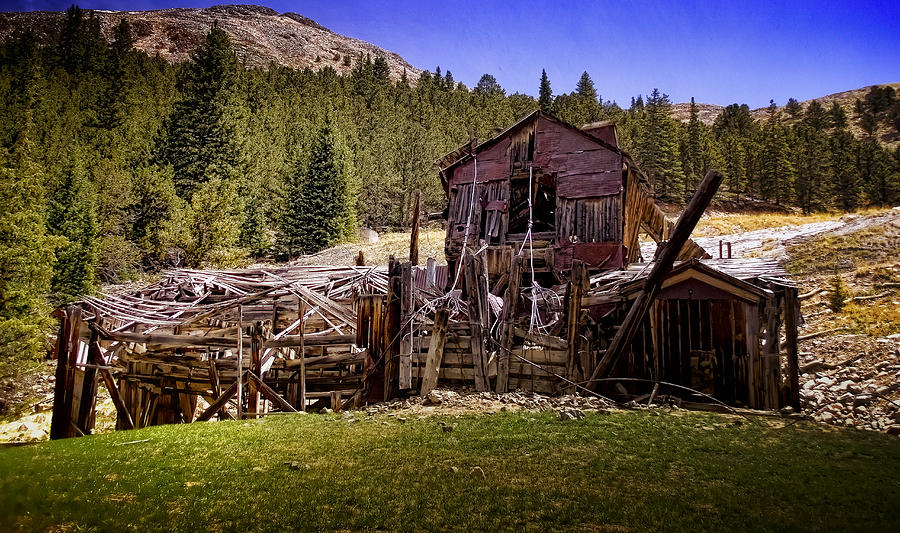Ghost town of St. Elmo

A visit to Chaffee County isn’t complete without a stop in the Ghost Town of St. Elmo. Originally named Forest City but was later changed because of the multitude of towns with the same name. The name St. Elmo was chosen by Griffith Evans, one of the founding fathers, who was reading a novel with the same title.
The town was at its peak in the 1890s, when it included a telegraph office, general store, town hall, 5 hotels, saloons, dancing halls, a newspaper office, and a school house. The Denver, South Park and Pacific Railroad line ran through St. Elmo. There were 150 patented mine claims within the area. The majority of the people who lived in St. Elmo worked at the Mary Murphy, Teresa C., The Molly or the Pioneer Mines. The Mary Murphy Mine was the largest and most successful mine in the area. The Mary Murphy Mine recovered over $60,000,000 worth of gold while it was in operation. While the other mines eventually shut down, the Mary Murphy Mine continued to operate until the railroad was abandoned in 1922.

Once the mining industry shut down, St. Elmo drastically declined in population. Miners searched elsewhere for gold and silver and the business district in St. Elmo closed down as well. Few people continued to live in the town. Postal service was discontinued in 1952 after the death of St. Elmo’s postmaster.
Even though St. Elmo is considered a ghost town it is still inhabited. Tourism brings many people to the St. Elmo area every year. The old mining roads are now used as Jeep and four-wheeler trails. There are also many good places to fish along Chalk Creek, which runs through St. Elmo. The general store is open during the May-October, when tourists can rent four-wheelers or buy bags of sunflower seeds for the resident chipmunks. Many of the buildings are still intact. However, the town hall and a few other buildings burnt down in 2002. Buena Vista Heritage is rebuilding the town hall to its original state.


